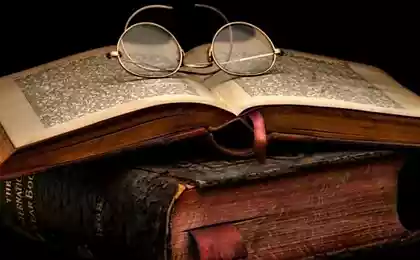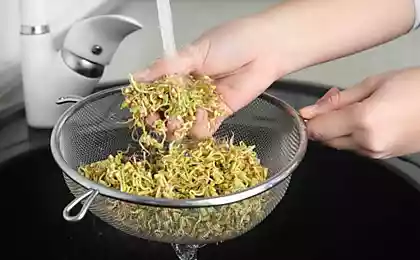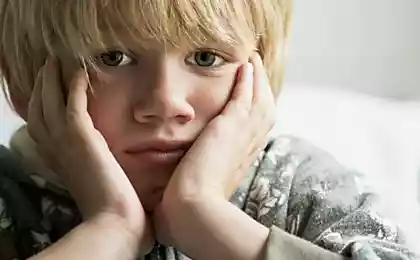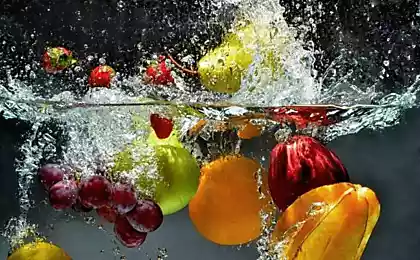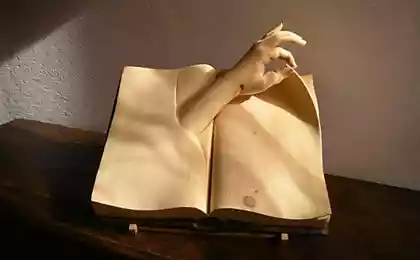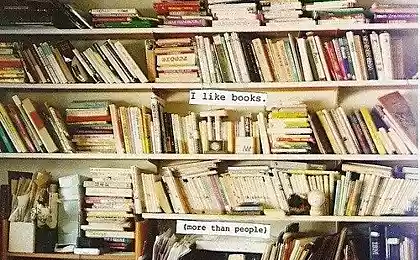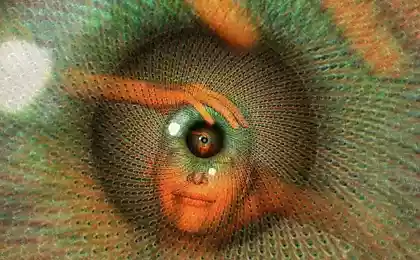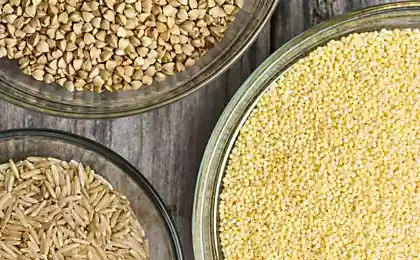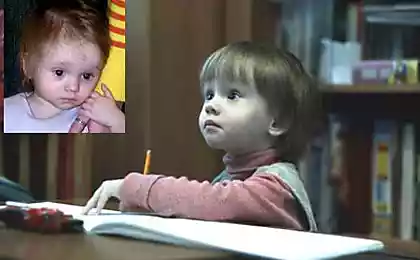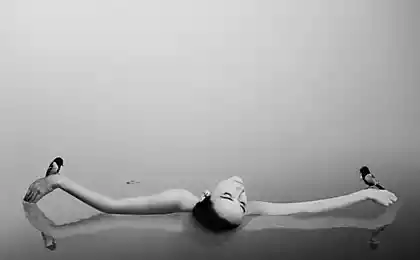654
The choice of the month - a book “Miracle of Mindfulness” or how to wash dishes
There are books, they are like a breath of fresh air from reading that every cell in our body comes to life, breathing this air, and begins to radiate peace and universal happiness. Today I want to tell you about one such book, it is called “the Miracle of mindfulness” and the author of the famous Vietnamese monk Thit Nhat Hanh (Thich Nhat Hanh). You know I believe in intuition and pay attention to the signs. So, in this book I again brought marks, the name of Thich Nhat Hanh I recently constantly appeared before my eyes. And when I finally decided to give this fact due consideration, it turned out that the owner of this wise teacher I was a year ago already bought, I have it sitting on a shelf at home, waiting patiently for the right moment.
The first time I heard about Thit Nhat Hahn interview with Oprah (oh, yes, I love Oprah''s Super Soul Sundays :)), how do I find out who this incredible man. When he talked about the war in Vietnam and about how the monks at that time burned alive in the name of love and not out of desperation, I believed his every word.
When he described his meeting with Martin Luther king, I perfectly understood why this monk was able to change the representation of the king on the Vietnam war. Later, when I began to read more about the life and mission of this amazing man, he again was able to convince me that pacifism is not for the weak, and the wisdom of good and courageous people. And it was very important for me in mind all of the events in the world, democratic revolutions and of the struggle for freedom, from the observation of which I thought I will go crazy.
The phrase “engaged Buddhism”, I think it brilliantly explains the doctrine, worldview and ideas Thit Nhat Han. My understanding is this “spiritual activism” or “active pacifism,” which is an incredible response in my heart.
The book “Miracle of mindfulness”, some thoughts from which I want to share with you was written as a long letter to another monk, who had been in Vietnam when Thit Nhat Hanh was in exile in France.
It gives it a real color. It is not just something from the category of fiction, and real life wisdom, which not only can philosophize, and to forget, and need to practice every moment of our lives.
Awareness in family life and in everyday life
Very interesting, that's Thit Nhat Hanh begins the story in the book, in fact, it would seem that the family life of the monk is of little interest. However, from a conversation Thit Nhat Han with his married friend named Allen, we learn that mindfulness is not only a lot of spiritual teachers who spend years on end in the Lotus position, meditating in solitude.
We are all capable of practicing conscious meditation, regardless of our life situation, family status and other things. I think this is one of the main things that a monk wants to bring us.
A conversation with a friend is just awesome. Allen explains that immediately after the birth of children it was difficult to find time for yourself, then he tried to split the day in half: one for son, one for daughter and another for his wife, and finally another one for myself. However, so he never had time for.
And he decided to change his vision of the situation: he was no longer to divide their time apart, he began to consider every moment spent with children or spouse as “time for yourself”. He started to find interest in every moment, he started to live in each of these moments, and in his words, “craziest thing happened – he had endless time for yourself”.
Another story tells us Thit Nhat Han, is associated with washing dishes. Every time I read examples that clearly and simply explain the philosophy of Buddhism, I feel such tenderness and peace.
“When someone washes dishes, he only needs to wash the dishes, which means he should be fully aware of the fact that he washes dishes,” explains the monk. If one does something with full awareness, only then we can say that he truly lives. Thit Nhat Hanh explains that the dishes can be washed in two ways.
First, in order to wash the dishes. The second is to wash dishes. In other words, if we do something to achieve the end result, we are absorbed by the illusion of the future, instead live in the present, and enjoying the process of what is happening.
If we wash the dishes, then to drink tea, then there is a strong likelihood that when the time comes to tea, we won't be able to drink tea as we are unable to wash the dishes. Everything of genius is simple :).
Thus, practicing mindfulness in every action, no matter how insignificant it seemed, we make “life” in our existence.
The ability to see miracles
I remember the following statement: “Many believe that walking on water or air is a miracle. But I think the real miracle... is walking on the ground.”
After reading this thought I had, would now look like our planet, if each of us was able to see miracles, look at the sky, clouds, green leaves, extraordinary world that surrounds us. Matter how carefully we treat our planet!
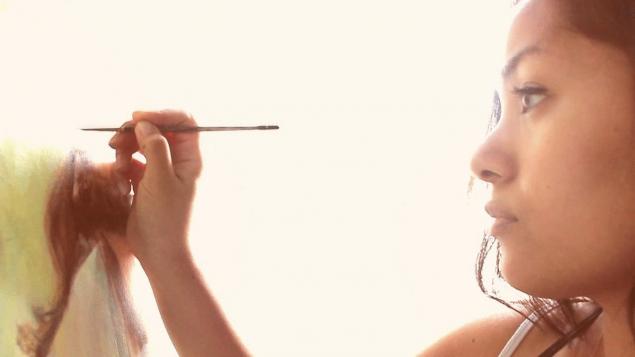
What is awareness?
Thit Nhat Hahn explains that awareness (mindfulness) is the ability to retain a living consciousness in the actual moment of reality. What would we do in daily life (in family, with friends, at work etc), if we are at 100% in this business, then we can say that we do it consciously.
I also like how the teacher notices that awareness is both seed and fruit, and the process and the result (a means and an end). So mindfulness helps us to focus our attention on what is important (the seed), and at the same time, awareness is presence, which in itself is a life (and this is a fruit).
Breath
So much written about breathing, but most of us do not believe that breath, in fact, is such a unique and amazing phenomenon. We certainly take breathing for granted, not realizing what magical properties have with conscious breathing.
The breath is the bridge between life and consciousness, the connecting link between body and soul.
I previously had no idea that it is possible to breathe wrong when I began to practice different breathing exercises, I realized that this is not just words.
I often start meditation with observing the breath, and when not “medicines”, I believe the sighs and exhalations, but not automatically, but consciously. When I feel stress or anxiety, short sighs and long breaths always help. Thit Nhat Hahn writes that proper breathing is more important than proper nutrition. Have you ever thought about it?
Conscious day
Thit Nhat Hanh advises to choose one day a week, which will be entirely dedicated to awareness. Sounds like a fairy tale, right? I think for me it's unattainable dream. At the same time, I try one day a week to do a juice detox, maybe someday I will be able to devote a whole day of mindfulness, who knows :).
On this day, on the advice of teachers, we need to do everything especially slowly and carefully. From the moment you Wake, every minute has to be lived consciously, slowly, not getting lost in the past or future but living in the present. We gently Wake up, slow cook food, thoroughly clean, take hour-long bath...
Whatever we do, it should be regarded as the most important action in our lives at the moment. Sounds like the perfect retreat for the soul, right?
Thit Nhat Hanh believes that every person just need to have the opportunity to spend one day in complete awareness. Imagine such a law, thinking creatures, once a week to practice mindfulness? Give yourself permission to dream what is possible. Remember, our thoughts materialsource :).
Meditation
In his book Thit Nhat Hanh offers various practices of meditation, some of which I'm clearly not ready (I won't say what is practice to you not to scare). At the same time, many of his tips and practices it is very easy to apply in our lives. I certainly learned a lot by reading this book.
Why meditate? First, for a vacation. Secondly, for the clear heart and clean thoughts. Just poetry, and I want to fold the legs in Lotus position :). The monk is advised to meditate sitting and start out with 20-30 minutes. Half-smile on his face – a prerequisite for successful meditation :).
The instructions are simple: watch the breath and let go of everything else.
Monk notices that though meditation allows us to get rid of stress, but this does not mean that in the process we should fall into a certain state or a sleep, on the contrary, our minds must keep fit and to be especially attentive to everything going on.
“When we meditate, we must be alert no less than the driver of the car,” writes Thit Nhat Han. This applies to our thoughts, feelings and attitude. We should be able to observe them, they should not be divided into good and bad and try to get rid of them.
Just to recognize their presence.
“Thoughts are part of us,” writes the teacher. If we experience evil thoughts, then we are angry. If we have happy thoughts, then we have happiness. This understanding of Buddhism to me has never given. Here I feel closer to Eckhart Tolle when he explains that there are thoughts, and is the true “I” as an observer.
The idea that we are not our thinking, is the main provisions of the teachings of Tolle.
In Buddhism, all a little different: there is no subject and object of observation. Thinking is a part of us, and through him we see ourselves. Remember the famous question of the Buddha, which brought to mind thousands of people? “What is the sound of one hand applauding?”
Tolle believes that this riddle has one goal – to stop our logical thinking (because the correct answer to this question is no). Thit Nhat Hahn believes that the meaning of this question is to show the inseparability of thought from the thinker. He writes that we – both the idea and the observer, when “the mind dwells in mind”.
If the above puzzle is confusing, do not pay attention to it, even spiritual teachers themselves understand it.
The fact remains – we have thoughts and feelings on the machine in control of our behavior and Outlook.
If we learn to notice them, we are already halfway to peace, insight, feeling and finding yourself. Why? For me it is very clear here is an example.
If we are in a dark room and hear the noise, we get scared and the uncertainty of us can drive you crazy. However, if we Shine a flashlight towards the noise and see what is that the cat broke the Cup, we are not a cat, neither dark nor scary thought is not terrible. It's all in the light.
Meditation is like light, when we Shine our light of consciousness on our thoughts and feelings, they lose their power over us. That's why you need to practice mindfulness.
And there is therefore no point in condemning our thoughts and to evaluate them. It is enough to devote to them the light of our attention, to notice them, instead of going on about them.
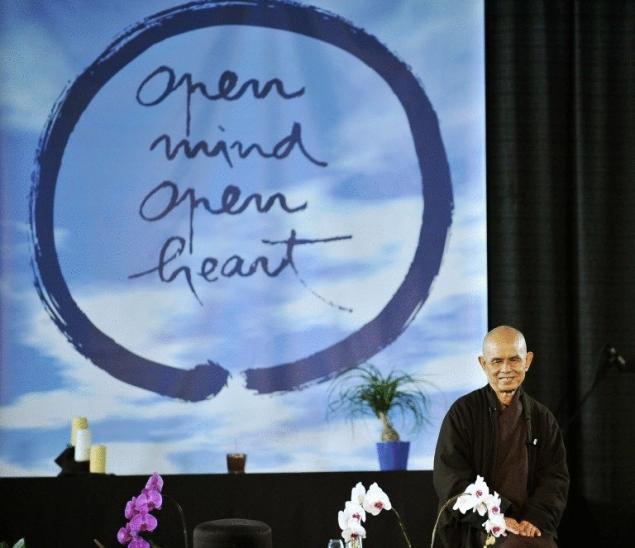
The unity and interdependence: one is all, all is one
We often hear the saying as “we are one.” It's easier for me to understand this phrase when I realize that we are all energy fields, we consist of molecules and atoms, between which there is emptiness.
We are all of the void).
Our energy field is the magnet that gathers all the pieces in the void together, without our energy (soul or consciousness) we would have been just particles of the universe, like everything else in this world.
Thus, we all come from one source, made of the same material, we are all particles the same. This is my understanding :).
Thit Nhat Hanh talks about the same a little different.
He writes that, as the subject of knowledge cannot exist separately from the object of knowledge, everything is United and interconnected.
When we think, we think about something; hence the object of thinking is also thinking.
And all objects of thought can be divided into 5 groups, which are called the Dharma (dharmas):
1) the body and physical form;
2) feelings;
3) perception;
4) intellectual activity;
5) consciousness.
Consciousness is the basis of existence for all other categories.
To understand that the interdependence and unity of means, the teacher gives an example with a table that exists as an object made of wood, felled a man that grew in the ground...
If one looks at table and sees in it the entire universe, and soon he will be able to see the universe in himself. However, we, the people bound to a false vision of ourselves as a separate entity of reality.
Hence all the suffering we experience.
If we can see that everything in the world is that we are not a part of, and inextricably part of the system, then our suffering will come to an end. We can realize that we are life, and life is limitless.
We will cease to fear death and will be able to enjoy every minute of unreal stunning reality.
Thus, the meditation on interdependence is an inherent part of Buddhist practice is enlightenment.
The people around us
Thit Nhat Hanh writes that if one person in the family lives consciously, it affects the entire family. In the society by their example of living in the “presence” of such a person reminds all others to be aware of. And since everything is interconnected, the influence of one person on society should not be underestimated.
Like everything in life to be on time?
Interestingly, Thit Nhat Han uses an interesting example about Tolstoy the three questions of the Emperor:
— When is the best time to to do something?
— Who the most important people with whom to work?
— What's most important in life?
If you've already caught the progress of Buddhist thought, we might guess that the answers to these questions were as follows:
There's only one most important time, and this is now.
The most important people – those who are close to you.
And the most important thing in the world is to make people around you happy.
Simple wise universal truths. Thit Nhat Hanh I am sure that Tolstoy was a Saint and he understood life, because he practiced mindfulness.
The immense pleasure I got from reading this small book, thinking creatures.
Who else read it? Cause you have the same emotion and feeling of peace reading such literature? I encouraged you to go wash the dishes mindfully?
As far as I understood, it all starts with small actions. If we learn consciously to wash the dishes, clean the house, to walk, to breathe and to think, only then we can hope that our daily spiritual practice will be enough to be able to use common sense when dealing with the far from conscious people in conflict and stressful situations and other life difficulties in daily life.
Source: thinkingcreature.com

